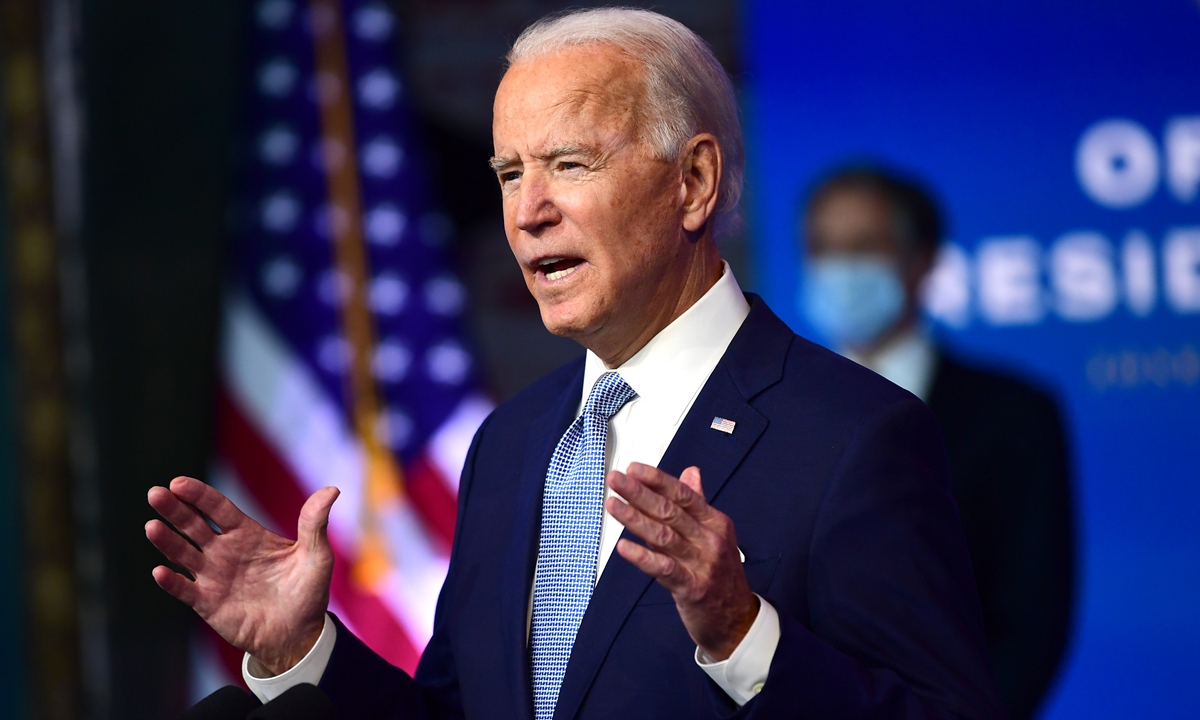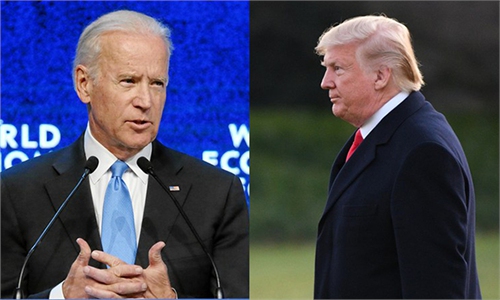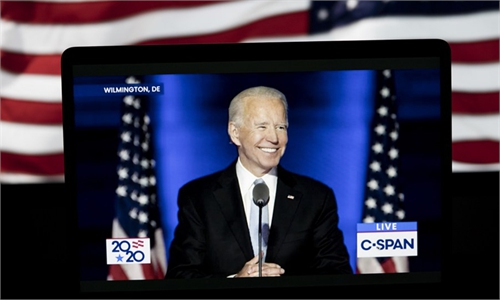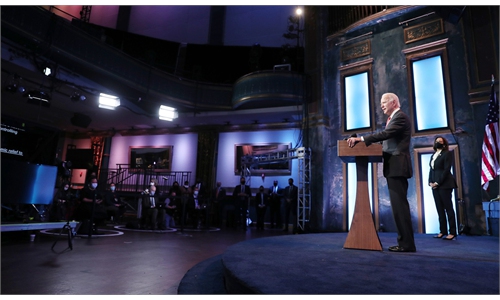SOURCE / MARKETS
Chinese experts cautiously optimistic on China-US trade relation following Biden’s economic picks

US President-elect Joe Biden speaks during a cabinet announcement event in Wilmington, Delaware on Tuesday. Biden introduced a seasoned national security team he said was prepared to resume US leadership in the world after the departure of President Donald Trump. Photo: AFP
As US President-elect Joe Biden's economic team takes shape, Chinese experts have taken a cautiously optimistic attitude toward future China-US economic and trade relationship, believing that continuous US containment will endure despite scope for greater bilateral cooperation.
Biden is stage of finalizing his senior economic team with Former Federal Reserve Chair Janet Yellen set to become the official nominee for Treasury Secretary, US outlet CNBC reported.
Biden has nominated Cecilia Rouse, one of the nation's top labor economists, to serve as chair of the Council of Economic Advisers (CEA) and has tapped Jared Bernstein, who served as Biden's chief economist throughout the Obama administration, to serve on the council. The CEA is a panel of experts charged with providing the president advice and direction specific to economic policy.
Biden has picked Brian Deese, a White House advisor during the Obama administration, to lead his National Economic Council, the New York Times reported.
"Given Yellen's pragmatic character in her previous career and public comments showing support for open trade and globalization, it's believed that a Yellen-headed Department of Treasury will promote dialogue with China," He Weiwen, a former senior trade official and a senior fellow of the Chongyang Institute for Financial Studies at the Renmin University of China, told the Global Times on Tuesday.
Meanwhile, Deese, who has represented the interests of large US companies that "have tasted the sweetness of doing business with China," is also likely to promote cooperation with China, He said.
Yellen criticized Donald Trump's trade war against China at the Asian Financial Forum held in Hong Kong in January, saying that the phase one trade deal still makes most Chinese goods subject to "pretty high levels" of US tariffs that won't be "very noticeable" for US households.
She also warned that unresolved tensions over technology between the two economic powerhouses could divide the world and slow the development of artificial intelligence and 5G.
"Technologies developed in one place of the world need to be and can be applied throughout the world, and become the base for further progress of technological innovation," she said. "Losing those synergies" would be a very negative development, she said, noting that "I hope we will not go there."
However, experts remain cautious that the trend of US containment of China's development will endure despite new government policies and personnel.
"The Biden administration may revise Trump's erratic approach of imposing sanctions on certain Chinese companies, at the same time the US may cooperate with its allies to establish rules in areas such as human rights, freedom of speech, and the environment to contain China's development," Gao Lingyun, an expert from the Chinese Academy of Social Sciences in Beijing, told the Global Times on Tuesday.
Regardless of Biden's next moves, China is committed to expand reform and continue the process of opening-up, aiming to double total GDP to $30 trillion by 2035.
Under a "dual circulation" strategy, scientific innovation will drive China's manufacturing industry and push it further up the global value chain while ensuring domestic supply, experts noted. Achieving independence in key areas, such as scientific research and finance is expected to be a focus.



